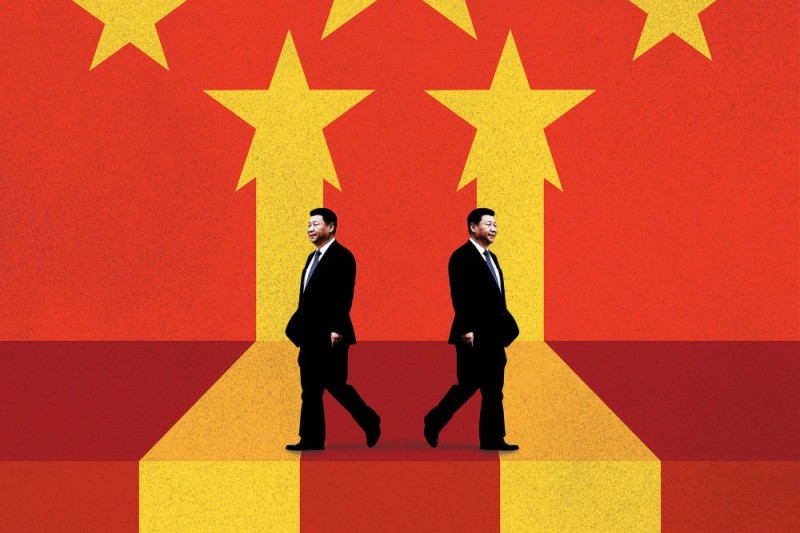
New Delhi: In recent years, China's rise as a global economic and military power has sparked debates about its potential to challenge Western strategic dominance. While China's influence has undoubtedly grown, several factors suggest that it may not pose an immediate threat to Western hegemony in the near future.
Economic Disparity: While China has achieved remarkable economic growth, it still faces significant challenges. The Chinese economy heavily relies on exports and manufacturing, leaving it vulnerable to global economic fluctuations. Additionally, income inequality, environmental concerns, and an aging population pose significant obstacles to sustained economic development. These challenges could limit China's ability to surpass Western economies and attain long-term strategic dominance.
Also read:This Day in History: Nehru Inaugurates the World's Longest Dam, Bhakra-Nangal, in Punjab
Technological Innovation Gap: China's progress in technological innovation has been remarkable, particularly in areas such as 5G, artificial intelligence, and quantum computing. However, it still lags behind the West, particularly in core technologies and research and development capabilities. The Western countries, with their advanced technological infrastructure and intellectual property protections, continue to maintain a significant advantage, making it difficult for China to bridge the technological innovation gap in the short term.
Soft Power Deficit: While China has made efforts to enhance its soft power through initiatives like the Belt and Road Initiative, its reputation is still marred by human rights concerns, lack of political transparency, and aggressive diplomatic tactics. These factors limit China's ability to build strong alliances and shape global narratives, which are crucial elements in challenging Western strategic dominance.
Also read:Justice Srikrishna Raises Alarm Over Data Protection Bill's Govt Exemption, Igniting Privacy Debate
Military Capability Gap: China's military capabilities have grown substantially in recent years, including advancements in missile technology, naval expansion, and cyber warfare capabilities. However, it still falls short of Western military prowess, particularly in terms of overseas force projection and the ability to engage in high-intensity conflicts. The United States, along with its Western allies, possesses superior military capabilities, including advanced technology, logistical capabilities, and established alliances, which provide a significant deterrent against any potential challenge.
Regional Security Concerns: China's assertive actions in the South China Sea, territorial disputes with neighboring countries, and strained relations with key regional players have raised concerns among neighboring countries. These tensions hinder China's ability to establish a stable and cooperative regional environment, which is vital for any global power seeking to challenge Western strategic dominance.
Also read:Japan Remembers Shinzo Abe: One Year Later, Pursuing Justice and Honoring a Visionary Leader
Normative Challenges: China's political system, characterized by a single-party rule and limited political freedoms, contrasts with the democratic values upheld by Western nations. The ideological divergence between China and the West poses challenges in building cooperative partnerships and garnering support from countries that prioritize democratic principles and human rights.
While China's trajectory suggests that it will continue to grow in influence, the aforementioned factors indicate that it may not challenge Western strategic dominance in the immediate future. Overcoming economic disparities, bridging the technological innovation gap, enhancing soft power, narrowing military capability gaps, addressing regional security concerns, and navigating normative challenges are complex tasks that will require time and careful navigation.
Also read:Hunter Biden should be drug tested says a US congresswoman
Moreover, the Western countries are not idle observers; they are actively adapting their strategies to maintain their dominance in the face of a rising China. Western alliances, economic partnerships, and military collaborations provide a strong foundation that serves as a bulwark against any potential challenge.
In conclusion, China's rise undoubtedly reshapes the global landscape, but the journey to challenge Western strategic dominance is likely to be a gradual and complex process. While China's influence grows, it will need to address internal challenges, close technological gaps, improve its global reputation, and navigate geopolitical complexities to reach a point where it can genuinely challenge Western dominance on the global stage.